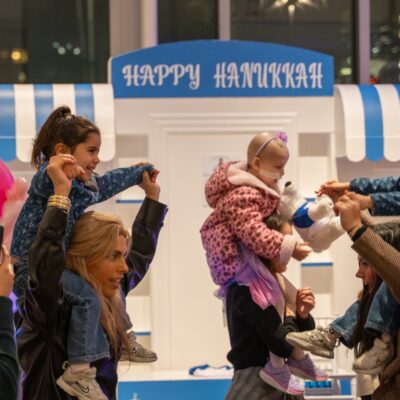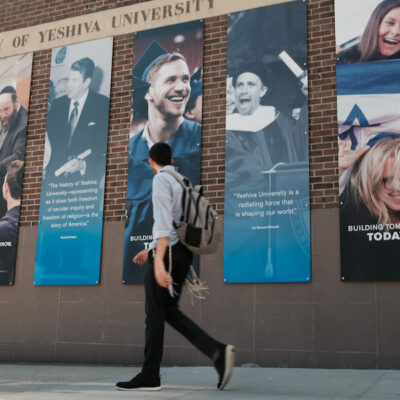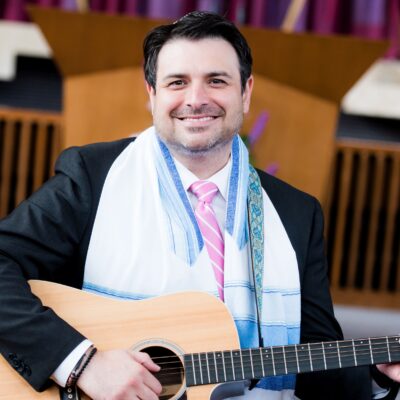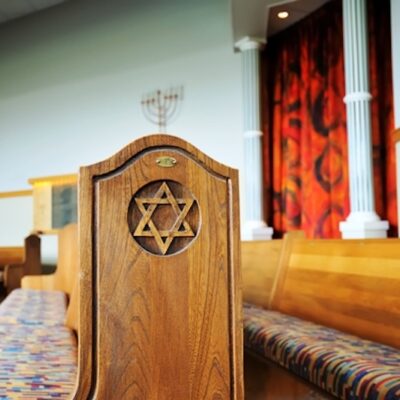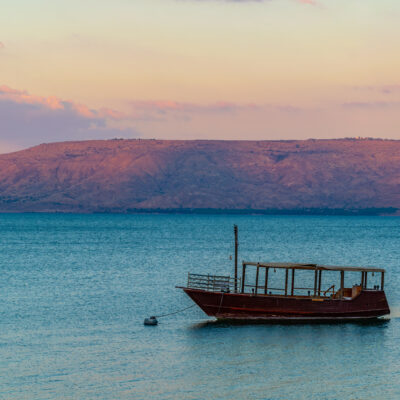Opinion
Four years later
A strategic choice: Expanding the shaded palm of the Abraham Accords
In Short
How philanthropy can deepen ties between Israel and the Muslim world — and why it should
Over the past 12 months, Jewish philanthropists have demonstrated remarkable support for Israel and the global effort to counter antisemitism.
These funders chose to engage, increase support and protect our common interests.

RYAN LIM/AFP via Getty Images
The Imam al-Tayeb Mosque is seen at the Abrahamic Family House in Abu Dhabi, United Arab Emirates, on Feb. 21, 2023.
With a spirit of gratitude towards fellow lay leaders who stepped up, I do wonder, was this our only strategic option?
As we observe international public opinion questioning our morality, in addition to the frequent protests on our campuses and streets, it seems a broad coalition of unlikely connections has come together united in their criticism of Israel and the Jewish people.
And while we should question the validity of their arguments, we can also extrapolate the importance of activating alliances in times of crisis.
Rather than merely looking inward as a people, we have learned the importance of building broad circles of partnerships and understanding. Yet is this sufficiently represented in our philanthropic giving?
Championing values of tolerance and diversity benefits us all. However, it is not easy to uphold such values. It requires effort, investment and deep relationships.
So when I look at our predicament through the unique prism of the United Arab Emirates — my home since the historic signing of the Abraham Accords — I appreciate that tolerance and a multicultural reality are long-term strategic priorities set by visionary leaders.
From the opening of the Abrahamic Family House in Abu Dhabi, to other places of worship and culture — the UAE has embraced Jews of all backgrounds, tourists and residents alike.
Here in Dubai and neighboring emirates, school children from over 200 nationalities now learn about the Holocaust in the national curriculum, while local Muslim leaders join us on the annual March of the Living in Auschwitz.
I continue to observe bold initiatives to advance the Abraham Accords such as NJY Camps’ Camp Abraham bringing together Jews and fellow teens from other faiths.
Acts of tolerance are pretty hard. Yet when we consider the alternatives — a world filled with fear and intolerance — there is much more to lose.
So we have a choice.
And it’s not simply about giving locally, it’s deeper: Where do we anticipate Jewish growth to be in the future? Which parts of the world can safeguard our interests or serve as a beacon of light and inspiration during a dark period in Jewish history?
The Muslim world has many customs and interests in common with our own. Therefore, the Jewish people should actively embrace this part of the world — spreading the palm branches of peace and understanding, marginalizing hatred and those who wish to harm us.
After all, the cost of countering antisemitism is much greater than the act of educating and engaging voices of moderation — arguably, the silent majority.
For this reason, Neishlos Philanthropy has dedicated resources to mapping strategic needs that benefit our people. Building off past successful projects, there is a desire to scale up efforts.
As a philanthropist and businessman, I believe we will have even greater impact when we leverage our giving as a collective. More lives are touched, programs reach new heights and we are able to solve big issues faster.
This month marks the fourth anniversary of the signing of the Accords — a historic act that has transformed our region, global Jewry and Israel’s credibility.
And even though relationships are tense, and perhaps even fragile in some places, now is the time for the Jewish philanthropic world to increase its strategic investment because Israel guarantees the existence of the Jewish people and the Abraham Accords guarantee the legitimacy of Israel.
Together, they form a united front that protects us.
Our philanthropy in the UAE prides itself in leading the way: We helped fund the first Kristallnacht memorial, and the first Israel Independence Day gathering, among many.
Our role is clear: to build bridges — culture-to-culture, people-to-people — and expand this shaded palm around the globe.
In the region, advancing our own community infrastructure, as well as multicultural and interfaith spaces, requires greater understanding of local needs, as well as our own.
From this vantage point and milestone moment, one not only sees the stark choice facing our nation today, I am also reminded of the Righteous Gentile family that saved my grandmother during World War II, thereby affording me the opportunity to live and give.
Complacency is no longer an option. Now is the time to export the values of the Abraham Accords for our common good, and security.
Our wisest choice is to engage, and I hope you will join me in this essential effort.
Eitan Neishlos, founder of Neishlos Philanthropy, is a philanthropist and businessman based in the UAE.

 Add EJP on Google
Add EJP on Google


